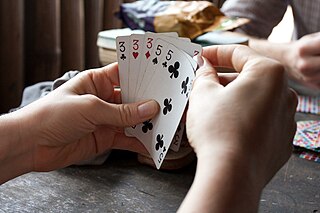 W
WA shedding-type card game is a game in which the player's objective is to empty one's hand of all cards before all other players.
 W
WBauernheinrich is a card game for four players that is played in the region of Anglia in the north German state of Schleswig-Holstein. Its origin is unknown. It is played with a normal Skat pack. The winner is the one to 'go out' first. An unusual feature of this game is that each player has their own trump suit and so can trump others with it; a feature shared with the Czech game, Dudák, and the Russian game, Svoi Kozyri. It is a member of the 'beating game' family.
 W
WBig two, is a card game of Chinese origin. It is similar to the games of winner, daifugō, president, crazy eights, cheat, and other shedding games. The game is very popular in East Asia, and in Southeast Asia, especially throughout mainland China, Hong Kong, Macau, Taiwan, Indonesia, Malaysia and Singapore. It is played both casually and as a gambling game. It is usually played with two to four players, the entire deck being dealt out in either case. The objective of the game is to be the first to play of all of one's cards.
 W
WCheat is a card game where the players aim to get rid of all of their cards. It is a game of deception, with cards being played face-down and players being permitted to lie about the cards they have played. A challenge is usually made by players calling out the name of the game, and the loser of a challenge has to pick up every card played so far. Cheat is classed as a party game. As with many card games, cheat has an oral tradition and so people are taught the game under different names.
 W
WCastle is a card game designed by Bruno Faidutti and Serge Laget, played with 2-5 players. It is a shedding card game, i.e. the winning player is the one who disposes of all of their cards first.
 W
WCrazy Eights is a shedding-type card game for two to seven players. The object of the game is to be the first player to discard all of his or her cards. The game is similar to Switch and Mau Mau.
 W
WDaifugō or Daihinmin , also known as Tycoon, is a Japanese shedding-type card game for three or more players played with a standard 52-card pack. The objective of the game is to get rid of all the cards one has as fast as possible by playing progressively stronger cards than those of the previous player. The winner is called the daifugō earning various advantages in the next round, and the last person is called the daihinmin. In that following round, winners can exchange their one or more unnecessary cards for advantageous ones that losers have.
 W
WDomino, also known as Card Dominoes, Spoof, Sevens, Fan Tan (US) or Parliament (UK), is a card game of the Eights group for 3–7 players in which players aim to shed cards by matching the preceding ones or, if unable, must draw from the stock. Cards are played out to form a layout of sequences going up and down in suit from the agreed starting card. The game is won by the player who is first to empty their hand. The game is a cross between dominoes and patience and is suitable for children who have learnt the various card values.
 W
WDou dizhu is a card game in the genre of shedding and gambling. It is one of the most popular card games played in China.
 W
WDurak is a traditional Russian card game that is popular in many post-Soviet states. It is Russia's most popular card game, having displaced Preferans. It has since become known in other parts of the world. The objective of the game is to shed all one's cards when there are no more cards left in the deck. At the end of the game, the last player with cards in their hand is the durak or 'fool'.
 W
WEleusis is a shedding-type card game where one player chooses a secret rule to determine which cards can be played on top of others, and the other players attempt to determine the rule using inductive logic.
 W
WEnflé, Rolling Stone, Farbenjagd or Schweller is an early nineteenth-century French trick-taking card game for three or more players that has been described as a "simple but maddening game" having "a lot of similarity to Rams and no less entertaining." It has also been called "one of the best children's games."
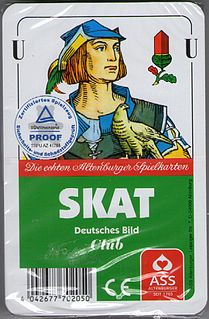 W
WSchweinchen is a really fast card game for 3 to 6 players, the aim of which is the shed one's cards as quickly as possible. It originates from Germany and is suitable for children.
 W
WFlaps is a commercial card game released in 2010, and is a shedding-type card game for two or more players. It is based on the game two four jacks, using a custom deck of cards written in both English and Czech. The game has seven levels, each level adding new functionality.
 W
WFlinch is a card game that was invented in 1901 by A.J. Patterson. Flinch is a card game that is based on stockpiling. The game is played with a custom deck and was first produced by the Flinch Card Company in Kalamazoo. This custom deck has 150 cards: ten sets of cards numbered from one to fifteen. Some variations use a deck that has 144 cards. Flinch is based on another game called "Spite and Malice".
 W
WGive Me the Brain is a discard-style card game designed by James Ernest and released in 1996 by Cheapass Games. In the game, players assume the role of zombies attempting to complete their tasks for the day at Friedey's, "the fast food restaurant of the damned", yet they only have one brain to share between them. The game inspired several sequels, all set at Friedey's.
 W
WGoita (ごいた) is a traditional Japanese game from Noto, Ishikawa played with 32 tiles or cards similar to Shogi pieces. Unlike actual Shogi pieces, the tiles are the same size and have blank backs. It may be a descendant of an earlier Meiji period game played with 40 or 42 cards. It is related to Iro Kammuri played with uta-garuta.
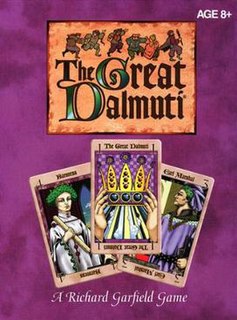 W
W'The Great Dalmuti is a shedding-type card game published by Wizards of the Coast in 1995.
 W
WHund is a card game, which is especially common in Silesia but not well known in Germany. It is played between four players using a standard French pack of 52 cards. The aim of the game is to get rid of all one's cards as quickly as possible to one's opponents. The game has no winner, only a loser: when one player has all the cards in his hand, they lose the game and are known as the "dog" (Hund) hence the name of the game.
 W
WJungle Speed is a card game created by Thomas Vuarchex and Pierric Yakovenko in 1991. First self-published and now published by Asmodee Editions, it is played with non-standard playing cards. An expansion and all-in set have been published.
 W
WKaschlan, Kastellan or Kurrhahn was a simple card game related to the Russian game Durak or German game of Hund. It is for two to five players and may be played with a Skat pack of 32 French- or German-suited playing cards or a standard 52-card French pack.
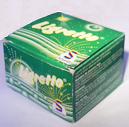 W
WLigretto is a card game for two to twelve players. The aim of the game is to get rid of all your cards faster than all the other players by discarding them in the middle of the table. Instead of taking turns, all players play simultaneously. The game in its present form, was published in 1988 by Germany's Rosengarten Spiele designed by Michael Michaels. An earlier form of the game was published at the start of the 1960s. Since the year 2000 the game has been published by Schmidt-Spiele of Berlin, Germany. In 2009, Playroom Entertainment began publishing the game for North America and other English-speaking countries.
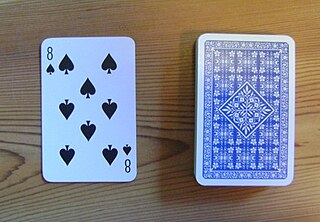 W
WMao is a card game of the shedding family. The aim is to get rid of all of the cards in hand without breaking certain unspoken rules which tend to vary by venue. The game is from a subset of the Stops family and is similar in structure to the card game Uno or Crazy Eights.
 W
WMusta Maija is a Finnish card game. It is primarily a children's game, but due to its tactical possibilities, it can be enjoyed by adults as well.
 W
WOnce Upon a Time is a card game produced by Atlas Games, originally released in 1994 with a second edition published in December of 1995 and the current third edition in October of 2012. One object of Once Upon a Time is to tell a fairy tale as a group. While the story is developed by the whole group, the competitive aspect of the game is that each player has an individual goal of using all of the "Storytelling" cards he or she has in hand, and finishing the story with their own special "Happy Ever After" card. Only one player at a time is the current storyteller, giving him or her a chance to play their Storytelling cards, while the other players have a chance to "interrupt" the story and become the storyteller if, for example, the storyteller mentions something on one of the interrupting player's cards.
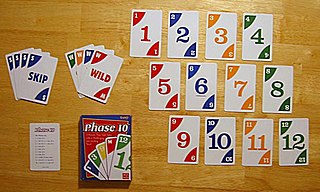 W
WPhase 10 is a card game created in 1982 by Kenneth Johnson and sold by Mattel, which purchased the rights from Fundex Games in 2010. Phase 10 is based on a variant of rummy known as Liverpool rummy, and is a member of the contract rummy family. It requires a special deck or two regular decks of cards and can be played by two to six people. The game is named after ten phases players must advance through in order to win. Phase 10 was Fundex's best selling product, selling over 62,600,000 units as of 2016, making it the 2nd best-selling commercial card game behind Mattel's similar-natured Uno. In December 2010, Fundex sold its license rights to Phase 10 to Mattel.
 W
WRed nines is a simple card game for four or more players. It is largely a game of luck, and is suitable for players of any age. Games with more than four players are best when played without hesitation.
 W
WRummoli is a family card game for 2 to 8 people. This Canadian board game, first marketed in 1940 by the Copp Clark Publishing Company of Toronto requires a Rummoli board, a deck of playing cards, and chips or coins to play. The game is usually played for fun, or for small stakes. Rummoli is one of the more popular versions of the Stops Group of matching card games, in particular it falls into a subgroup of stops games based on the German Poch and falls into a family of Poch variants such as the French Nain Jaune(Yellow Dwarf), the Victorian Pope Joan but most like the American game Tripoley which debuted eight years earlier in Chicago in 1932.
 W
WSchweinchen is a really fast card game for 3 to 6 players, the aim of which is the shed one's cards as quickly as possible. It originates from Germany and is suitable for children.
 W
WSnip-Snap-Snorum, or Snip-Snap-Snorem, is a matching-type card game, mostly played by children, and has several variants. The game dates at least to the 18th century, being first mentioned by the English authoress, Frances Burney, and probably derives from a more ancient drinking and gambling game. References to "Snip, snap, snorum", which seems to be the original spelling, go back to at least 1823.
 W
WTaki is a card game developed by Israeli game inventor Haim Shafir. The game is an advanced variant of Crazy Eights with a special card deck and extended game options. In its basic form it resembles UNO. It was introduced in 1983 by Shafir Games. The game cards were designed by Israeli artist Ari Ron.
 W
WTichu is a multi-genre card game; primarily a shedding game that includes elements of Bridge, Daihinmin, and Poker played between two teams of two players each. Teams work to accumulate points; the first team to reach a predetermined score is the winner. Tichu is the trade name for what appears to be a variant of Dou di zhu, Choi Dai Di (Cantonese) or Da Lao Er (Mandarin), meaning "big two", combined with Zheng Fen. It is also marketed as Tai-Pan in Dutch. It was invented by Urs Hostettler and released in 1991.
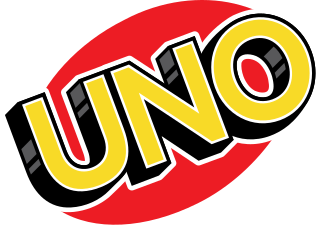 W
WUno is an American shedding-type card game that is played with a specially printed deck. The game's general principles put it into the Crazy Eights family of card games, and it is similar to the traditional European game Mau-Mau.
 W
WVoller Hund or Hund, possibly known in Austria as Hundern or Hundspiel, is a German card game that is suitable for children. It is named after the Eight of Leaves, the Dog, which used to depict a dog in old card packs.
 W
WZehnerlegen, Zehneranlegen or Zehner-Auflegen is a card game of the Domino family that is usually played with German-suited cards of the Bavarian pattern, the aim of which is to be first to shed all one's cards. It is thus a shedding-type card game. The name means "laying tens" and refers to the Tens (Zehner) which are the first card in each suit to be played to the table. It is played in Bavaria and in the Austrian state of Burgenland.